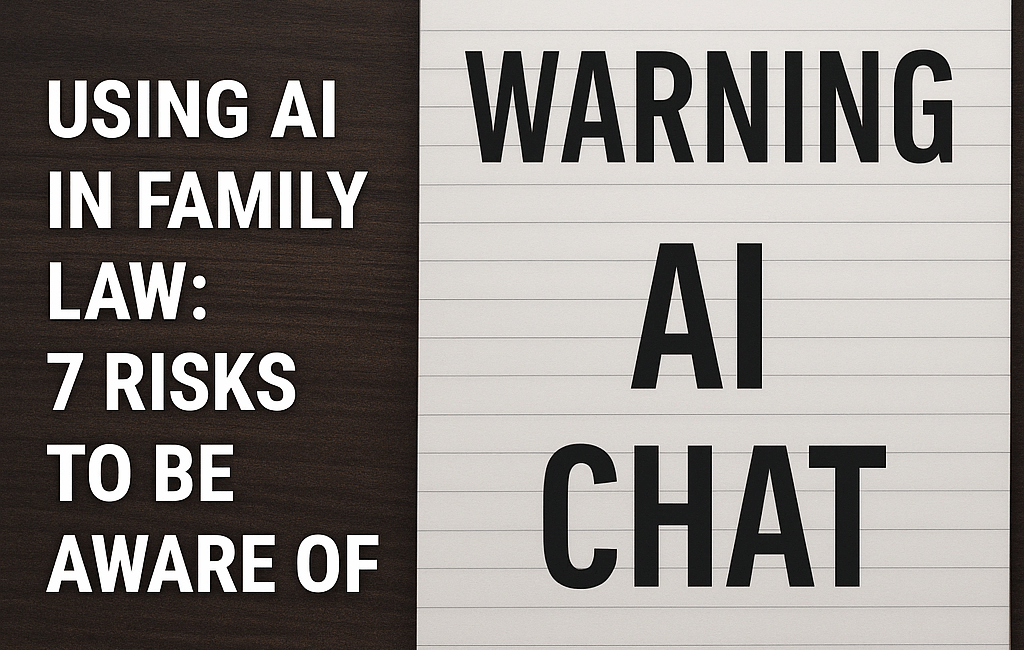Ai tools like ChatGPT are everywhere—and for good reason. They’re fast, free, and available 24/7. But if you’re in the middle of a divorce or custody battle, using these tools to ask questions, vent, or seek mental health advice could backfire—badly.
Here’s why you should think twice before typing anything personal into ChatGPT or similar tools:
1. Your Ai Conversations Are Not Private
Unlike conversations with your lawyer or therapist, what you say to ChatGPT is not protected. Ai chats are not covered by attorney-client privilege, doctor-patient confidentiality, or HIPAA. That means your words can be saved, accessed—and subpoenaed.
2. Deleted Ai Chats Don’t Mean Gone
You might think deleting your chat history erases it. But in ongoing lawsuits, courts have ordered OpenAi to preserve all chat logs, even ones users tried to delete. If your case goes to court, that “deleted” message about your drinking habits or parenting concerns could still be retrieved.
3. Ai Logs Can Be Used as Evidence in Court
Judges are starting to allow Ai conversations as admissible evidence. If you’ve used Ai to talk about your mental health, substance use, parenting stress, or finances, you may have unintentionally created a digital paper trail that opposing counsel can use against you.
4. Mental Health Disclosures Could Impact Custody
Typed something like “I think I’m depressed” or “I had a panic attack while watching the kids”? Even if those statements were part of a search for help, they could be presented in court as evidence that you’re unfit or unstable, especially if the other side wants full custody.
5. Financial Questions May Raise Red Flags
Did you ask ChatGPT things like:
-
“How do I hide money in a divorce?”
-
“Can I give assets to a friend to protect them?”
-
“What happens if I don’t pay child support?”
Even hypothetical or curious questions can be taken out of context and used to accuse you of dishonesty or bad faith.
6. Ai Doesn’t Give Reliable Legal Advice
Aside from the privacy risk, ChatGPT isn’t a lawyer. It may give outdated, incorrect, or oversimplified answers to complex legal questions. Relying on AI for legal strategy could not only hurt your case—but also make it obvious in court that you acted without proper legal guidance.
7. Real Help Comes from Real Professionals
If you’re feeling overwhelmed, sad, confused, or unsure, talk to someone you trust—a real lawyer, therapist, or support group. These conversations are private, legally protected, and most importantly, safe.
Bottom Line: Be Smart About Your Digital Footprint
At Hoffman, Larin & Agnetti, we’ve helped clients through high-stakes family law cases across South Florida for more than 40 years. We’ve seen texts, emails, and social media used in court—but now, we’re seeing Ai chats join that list.
Don’t let a chatbot undermine your case.

